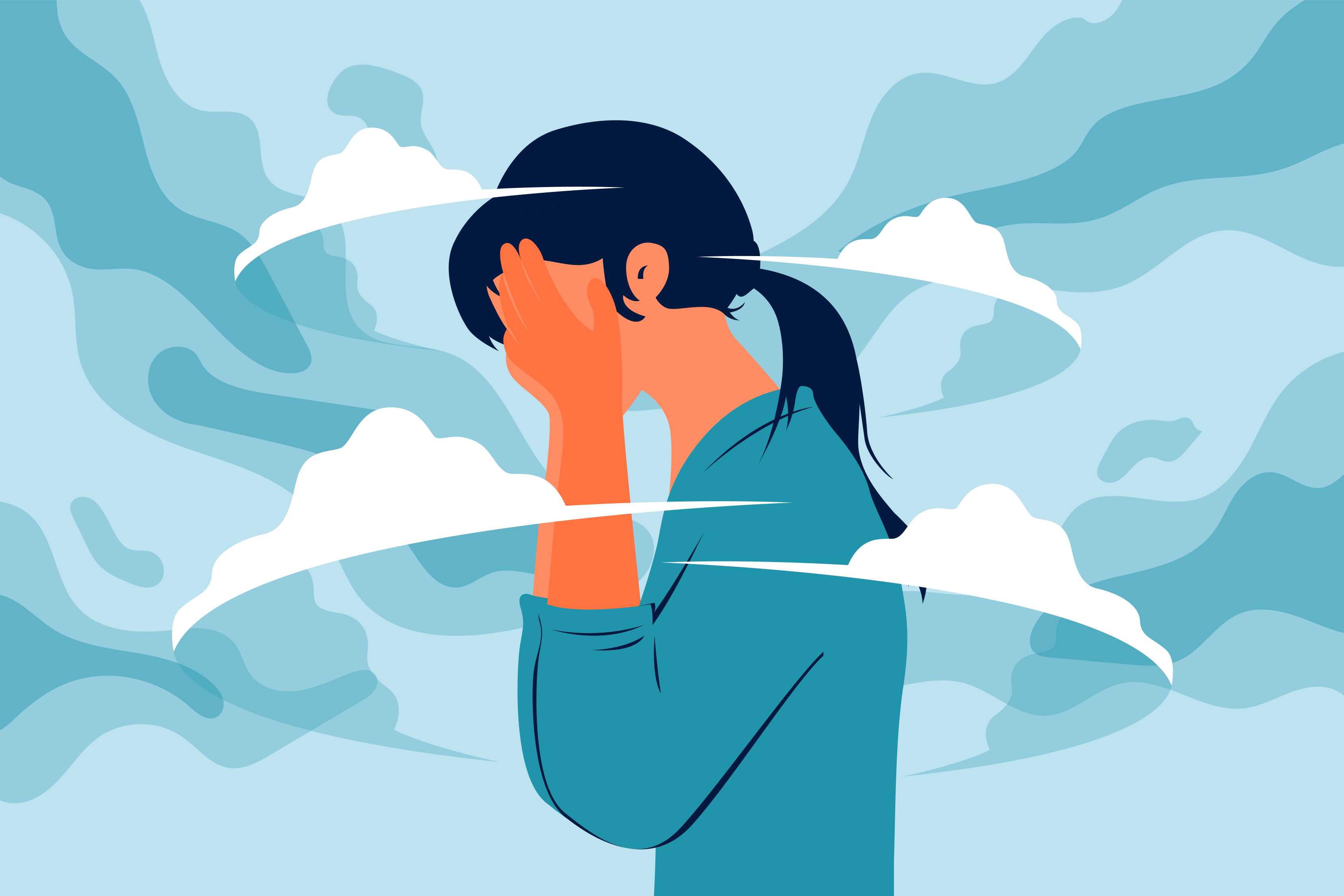Recognizing Burnout: Vital Signs for Mental and Emotional Well-being

Prolonged exposure to stress at work can result in burnout, characterized by feelings of exhaustion, emptiness, and an inability to manage daily responsibilities. Without intervention, burnout can severely impair one's ability to function. It's crucial to recognize both the physical and psychological symptoms of burnout, understand the risk factors, and consider strategies for recovery.
Indicators of Burnout
Identifying the symptoms is the first step toward acknowledging the negative impact of stress. Key symptoms include:
- Digestive issues
- Elevated blood pressure
- Weakened immune response (frequent illnesses)
- Persistent headaches
- Difficulty sleeping
- Problems with focusing
- Low mood
- Feelings of worthlessness
- Diminished interest or enjoyment in activities
- Thoughts of self-harm
- Extreme tiredness
How to manage Burnout
Managing burnout can be tackled through a comprehensive approach that includes discussing work issues with HR or your supervisor, exploring less stressful roles within your organization, and ensuring regular breaks during work. Incorporating mindfulness practices like meditation, maintaining a healthy diet, staying active, adhering to good sleep habits, and occasionally taking vacations to recharge are also crucial steps. These strategies collectively help in addressing the symptoms of burnout, promoting a healthier work-life balance, and enhancing overall well-being.
Understanding Burnout
Burnout results from enduring stress at work over a long period. It manifests through three primary symptoms: feeling overwhelmingly exhausted, developing a negative and detached attitude towards one's job (cynicism), and experiencing a decline in feelings of competence at work. Essentially, if work leaves you drained, makes you resentful towards your job, and undermines your sense of accomplishment, these are indicators of burnout.
Given the significant amount of time most people spend at work, disliking your job, dreading workdays, and lacking satisfaction from your work can significantly affect your overall well-being.
Symptoms of Burnout
Although burnout is not officially classified as a psychological disorder, it's a serious condition with significant physical and mental health implications;
Physical Symptoms of Burnout
Burnout can manifest several physical signs due to the body's response to prolonged stress. Notable physical symptoms include:
- Digestive issues
- Elevated blood pressure
- Decreased immune function, leading to more frequent illnesses
- Chronic headaches
- Problems with sleeping
These symptoms are indicative of the body's reaction to the sustained stress associated with burnout. Additionally, chronic stress can result in general physical discomfort, such as increased aches, diminished energy levels, and appetite changes, all of which can be signs of burnout.
Mental Symptoms of Burnout
The mental and emotional effects of burnout are profound, affecting your psychological well-being. Key mental symptoms encompass:
- Difficulty focusing
- Persistent low mood
- Feelings of worthlessness
- A diminished interest or pleasure in activities
- Thoughts of harming oneself
These mental health symptoms highlight the emotional toll that burnout can take, underscoring the importance of addressing burnout with the same seriousness as any significant health concern.
Burnout vs. Depression
While burnout and depression share several symptoms, including loss of interest, feelings of hopelessness, and both cognitive and physical symptoms, there are key differences that can help distinguish one from the other.
The primary distinction lies in the scope of these negative feelings and thoughts. Burnout is typically confined to the work environment and is a result of prolonged job stress. Individuals experiencing burnout may feel overwhelmed, undervalued, and disengaged at work, but these feelings might not extend to other areas of their life.
In contrast, depression affects all aspects of a person's life, not just their job. It is characterized by a pervasive sense of sadness, a lack of interest in previously enjoyed activities, and a general despair that affects how one feels, thinks, and handles daily activities. If you find that your negative feelings and thoughts permeate beyond your work life, it could be a sign of depression, and seeking help from a mental health professional is crucial.
Moreover, those experiencing burnout may be at an elevated risk for developing depression, making it important to address burnout symptoms early and effectively.
Risk Factors for Burnout
Not everyone with a high-stress job will experience burnout; it largely depends on how well the stress is managed. However, certain individuals and professions are more susceptible to burnout. Factors that can increase the risk include the nature of the job, workplace dynamics, personal characteristics, and how individuals cope with stress. Recognizing these risk factors is essential for prevention and management strategies to mitigate the adverse effects of burnout.
A report by Gallup identified five key workplace factors that can significantly contribute to employee burnout:
- Unreasonable Time Pressures: Employees with sufficient time to complete their tasks are 70% less likely to suffer from burnout. Conversely, those in roles where extending time isn't an option, like paramedics and firefighters, face a greater burnout risk.
- Insufficient Support from Management: Support from managers acts as a protective buffer against stress. Workers who feel robustly backed by their managers are 70% less likely to report frequent burnout symptoms.
- Lack of Role Clarity: Only about 60% of workers clearly understand their job expectations, leading to exhaustion among those trying to discern their responsibilities as these expectations shift.
- Unmanageable Workload: An overwhelming workload can leave even the most dedicated employees feeling hopeless, paving the way for burnout.
- Unfair Treatment at Work: Experiencing favoritism, unfair compensation, or mistreatment by coworkers makes employees 2.3 times more likely to experience severe burnout.
Beyond job-related stress, personal life stressors, and individual characteristics like perfectionism and pessimism, also play a role in escalating the stress that leads to burnout.
Effects of Untreated Burnout Symptoms
Ignoring burnout symptoms can have serious consequences, including:
- Alienation from Work-Related Activities: Burnout can make individuals view their jobs as more stressful and frustrating, leading to cynicism about work conditions and the people at work. It may also cause emotional detachment and a sense of numbness towards one's job.
- Emotional Exhaustion: Ongoing burnout can result in feeling emotionally depleted and overwhelmed, making it difficult to manage daily stresses.
- Reduced Performance: Burnout negatively impacts one's ability to perform tasks at work or at home, especially if caregiving is a primary responsibility. Symptoms like negativity towards tasks, concentration difficulties, and a lack of creativity contribute to a decline in performance.
Prevention and Treatment of Burnout Symptoms
Fortunately, burnout is not a permanent state and can be addressed through changes in the work environment or personal strategies:
- Workplace Solutions: Discussing issues with human resources or a supervisor can be effective, especially in organizations that prioritize a healthy work culture. Sometimes, a change in role or a new job may be necessary for recovery from burnout. If job change is not possible, altering tasks could provide some relief.
- Stress Management Strategies: Developing clear strategies for stress management is crucial. Self-care practices, such as maintaining a healthy diet, regular exercise, and good sleep habits, can mitigate the effects of job stress.
- Regular Breaks and Renewal Exercises: While vacations can offer temporary respite, they alone are insufficient to overcome burnout. Incorporating regular breaks and daily renewal exercises into one's routine is vital for long-term burnout combat and prevention.
Recognizing the key signs of burnout is crucial for maintaining mental and emotional health. By identifying these signs early, individuals can take steps to address burnout and prevent it from worsening. Prioritizing self-awareness and self-care is essential for staying balanced and fulfilled in life. Remember to listen to your mind and body to sustain well-being.




